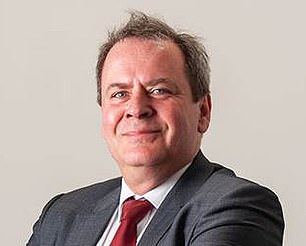Table of Contents
Every December, Interactive Investor’s Richard Hunter looks at the year ahead and describes an acronym and why items on the list are important.
This year its acronym is DIGITAL. Richard explains why below.
Last year we asked, in our annual acronym, whether any market recovery would reach MATURITY or whether there would still be much left to do.
We note that M(&A)/AI/Turbulence/UK market/Recession/Inflation/Tech ‘Magnificent Seven’ and Returns factors are potentially the main drivers of the year.
And in fact, not only did most of those factors play an important role, but there was still much to be done.
This was achieved despite rising geopolitical tensions and, in the UK, some consequences of the strict measures announced in the Budget.
At the time of writing, the Dow Jones Industrial Average in the US is up 18.4 percent year-to-date, the S&P500 up 27.7 percent and the Nasdaq up 32.3 percent , and each of them has reached record levels on many occasions during the year.
Meanwhile, in the UK, the FTSE100 has added a modest 7.8 per cent, while the more domestically focused FTSE250 has gained 7.2 per cent over the year.
This year we ask, in our annual acronym: in 2025, is the future DIGITAL?
Trump, tariffs and trade will be among the issues that will keep the City busy in 2025
- Dollar
- Inflation (again?)
- Growth
- Interest rates
- Tariffs/Trump/trade wars
- AI counting, or is there more to come?
- Large caps vs. small caps (including mergers and acquisitions)
These factors are most likely to influence investors and are:
Dollar
A delicate balance between growth and inflation and the dollar’s perception of having safe haven status have kept the dollar high.
If the new administration follows through on its pre-election promises, one outcome could be a reduction in the pace of interest rate cuts (see below), which, all things being equal, would support the dollar.
Conversely, a reduction in geopolitical tensions could hurt the dollar, although the currency market generally expects greater strength next year.
There could also be an indirect benefit for FTSE100 companies, where around 70 per cent of profits are derived from abroad, much of it from the United States. A weaker pound should, in theory, benefit companies that earn in dollars, whose profits become more valuable with repatriation.

Richard Hunter is Chief Investment Officer at Interactive Investor
Inflation (again?)
At a time when the battle against inflation appears all but won, any aggressive tariffs from Trump (see below) could reignite upward pressure on prices.
If the president-elect delivers his campaign rhetoric, this could result in higher inflation through those tariffs (as a reminder, tariffs are paid by the importing company and not the company exporting those goods and services), as well as measures stricter immigration policies and tax cuts.
These pressures could emerge almost immediately, implying an inflationary spike in the second quarter of next year after the inauguration.
Growth
In the face of these concerns, the likely measures, largely focused on the United States (at the expense of other countries if necessary), could boost what has already proven to be a strong domestic economy, with a strong consumer and manageable levels of unemployment that reduce any risk of recession. .
Investors have been chasing growth, particularly, of course, through mega-cap tech stocks, but a rising tide could lift all boats, including those companies further down the food chain.
In the UK, the growth potential is perhaps more nuanced.
While the economy could be hit by the measures announced in the budget, let alone any tariffs emerging across the pond, the UK market is still seen as having room to appreciate.
At undemanding valuation levels, the large number of strong, stable companies with relatively high dividend yields has not yet been fully recognized.
While this has been the case for some time, the day of reckoning may be approaching, especially if volatility elsewhere results in a foreign investor moving towards the perceived defensive haven status of the UK market. United, as evidenced earlier this year when the FTSE100 hit a record high in May.

A second Donald Trump presidency will have implications for investors next year
Interest rates
Higher interest rates make it harder to justify higher valuations, both because they reduce the present value of future earnings and because they can also limit the propensity of smaller companies to take on debt and thus grow their businesses.
As such, the likely downward trajectory of rates, especially in the US, was a major theme of 2024 and an upward driver of stock prices.
Expectations about the pace of rate cuts in 2025 have already been reduced in both the UK and the US, for slightly different reasons, but both related to a resurgence in inflation.
UK budget measures, such as increasing National Insurance contributions, have already been widely lamented across the industry, especially in the retail and hospitality sectors.
These companies need to replace this lost revenue and could decide to reduce investment, including new staff, or simply pass on any increased costs to consumers.
In the United States, the prospect of new inflation and interest rates staying “higher for longer” is not a mantra investors want to hear.
Tariffs/Trump/trade wars
In fact, President-elect Trump has already announced that he intends to introduce high tariffs on imported goods, which he believes are essential in an effort to reduce food prices and the federal deficit, while boosting manufacturing. national.
These range from 20 percent to Europe (there would be a big impact on the United Kingdom, whose second largest export destination is the United States), 25 percent to Mexico unless the flow of illegal drugs is stopped and 60 percent cent to China, where relations are already fractious.
Trump is a known negotiator and these comments may turn out to be his opening gambit rather than actual numbers he might have in mind.
In any case, progress will be closely monitored for additional pressure on supply chains, inflationary impact and even derailing the Federal Reserve’s plans to reduce interest rates.
AI counting, or is there more to come?
Any caution relates not to the unquestionable seismic impact the technology is already having on most areas of business activity, but rather to whether AI incumbents can continue to meet rising expectations.
Valuations are currently rich, although AI’s biggest beneficiaries have continued to confound skeptics with revenue and profit numbers that have boosted several large-cap tech stocks, most notably current market favorite Nvidia.
More broadly, Big Tech is expected to continue beating estimates over the next year, which of course carries some danger if some of those companies fail to meet expectations.
Large caps vs. small caps (including mergers and acquisitions)
Companies that want a quick route to AI exposure and do not have their own in-house development skills could well decide to grab existing AI products and experts.
Recent banking results have also shown something of a return to “deal-making” (mergers and acquisitions and new issues), which has boosted investment banking returns. This could continue to happen next year.
The potential tariffs mentioned above could affect US companies with supply chains in China, for example, and could also be seen as positive for small and mid-cap companies.
In the United Kingdom, according to a PWC report from July 2024, £68 billion in mergers and acquisitions were recorded in the first half of the year, an increase of 66 percent on the previous year, far exceeding the global activity, which grew by 5 percent more pedestrian. . The third quarter showed a relative decline, with 435 domestic and cross-border mergers combined compared to 479 the previous quarter.
However, the well-recognized relative pricing of the UK market compared to historical and other developed economies could still result in approaches for UK businesses at current levels turning out to be the thin end of the wedge.
Richard Hunter is head of markets at Interactive Investor.
DIY INVESTMENT PLATFORMS

AJ Bell

AJ Bell
Easy investing and ready-to-use portfolios

Hargreaves Lansdown

Hargreaves Lansdown
Free Fund Trading and Investment Ideas

interactive inverter

interactive inverter
Fixed fee investing from £4.99 per month

sax

sax
Get £200 back in trading fees

Trade 212

Trade 212
Free trading and no account commission
Affiliate links: If you purchase a This is Money product you may earn a commission. These offers are chosen by our editorial team as we think they are worth highlighting. This does not affect our editorial independence.
Some links in this article may be affiliate links. If you click on them, we may earn a small commission. That helps us fund This Is Money and keep it free to use. We do not write articles to promote products. We do not allow any commercial relationship to affect our editorial independence.

